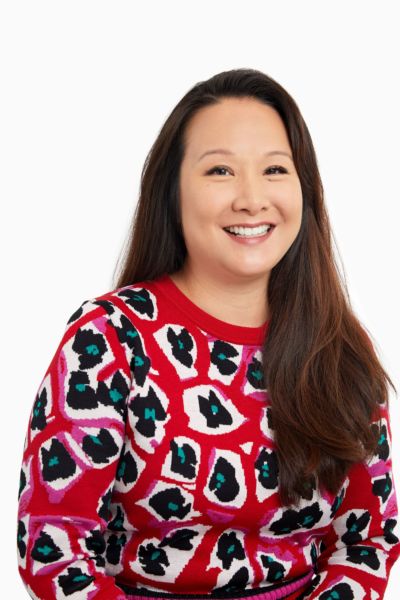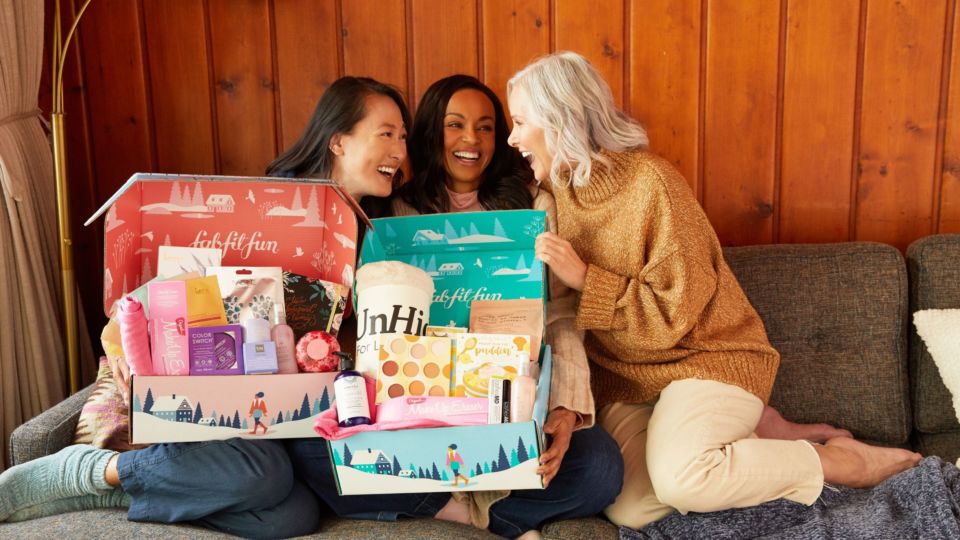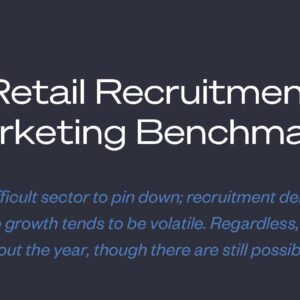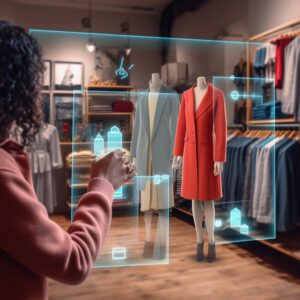Modern marketing efforts aren’t handled in an isolated room where catchy slogans are dreamed up — they’re created in places where every aspect of the retail business meets, from the supply chain to the sales team to feedback from the customers themselves. With so many disparate elements in play, having a strong leader is essential to building and maintaining a cohesive marketing strategy.
 FabFitFun excels at bringing these parts together in creative ways, thanks to its roots as a lifestyle site — a history that continues through the subscription box retailer’s online magazine and daily lifestyle content. That makes the company’s first Chief Marketing Officer, Louisa Wee, a perfect fit: she previously held leadership roles at Netflix and Pluto TV, giving her unique insights into the interplay between media and retail.
FabFitFun excels at bringing these parts together in creative ways, thanks to its roots as a lifestyle site — a history that continues through the subscription box retailer’s online magazine and daily lifestyle content. That makes the company’s first Chief Marketing Officer, Louisa Wee, a perfect fit: she previously held leadership roles at Netflix and Pluto TV, giving her unique insights into the interplay between media and retail.
In this exclusive interview with Retail TouchPoints, Wee discusses how her experience will inform her new role, and how hiring a CMO will help FabFitFun continue its momentum. She will also reveal:
- The ways a dedicated CMO can enhance and evolve a previously established marketing strategy;
- How backgrounds in streaming and as an analyst provide a beneficial foundation supporting strong marketing skills; and
- Why offering a number of interconnected services and offerings, rather than focusing on a single aspect of the business, is a powerful driver of strong customer loyalty.
Advertisement
Retail TouchPoints: You will be the first person at FabFitFun to hold the Chief Marketing Officer title. How will creating a C-level position help the brand take its marketing initiatives to the next level?
Louisa Wee: I’ve been a FabFitFun subscriber for a while independently — I was introduced to the box through a former colleague of mine who worked for me and led my digital media team. I would say I’m used to being delighted and surprised with what I found in the box as a consumer, and knowing that’s where I’m starting from has always been a really positive thing.
I think there’s lots of opportunities to take our current offering and bring them to an even broader consumer audience. I think there’s definitely space for new offerings. As I’ve been poking around, both before I joined in some of our community forums and now reading our official reports more deeply, you can see there’s an interest in broadening all of the ways we touch consumers, what we can bring to them and how we can help elevate their lives — and also ways for us to knit them together.
It’s really interesting — many of our consumers have found themselves becoming friends and actually doing things like meeting each other in real life, or talking to each other constantly within the walls of our community or even outside the walls of our community. I think all of those things show me a great deal of love for what we do as a brand, and that love could expand into new places. Certainly, I would say I want to work really closely with all the teams here, to take those opportunities to not only reach more consumers but also connect with the ones that we already have as members. How can we be a bigger part of their lives?
RTP: How will the lessons you learned at streaming companies like Netflix and Pluto TV apply to FabFitFun’s combination of retail and media?
Wee: Part of what we were doing at Netflix when I was there was building a lot of love for our title brands, which can build up to a greater love of the Netflix brand. I think that the concept of building brand love at multiple levels works here at FabFitFun. We have different offerings already: we have the box, we have our sales, we have our community, we have content that we make. Helping customers understand the value of each of those individual components, but then also feel that affinity for anything that sits under the FabFitFun umbrella, is an application of what I learned at Netflix.
In terms of Pluto TV, I know nowadays if you live in Los Angeles or any big city you see it on billboards and all over the place, but back when I was at Pluto it was very much a scrappy startup. There were less than 50 people who worked there, and we were crammed into a tiny office that one of our early investors offered us.
I would say that scrappy startup culture taught me how to just roll up your sleeves, understand it doesn’t matter what your title is, and get things done. I’m super excited to come to a company that is quite large already in terms of the financial footprint and number of employees, but still has that mentality of roll up your sleeves and have an impact immediately.
RTP: Your background also includes advisory work at companies including McKinsey & Co. and Deloitte. How did these jobs help prepare you for work as a marketer?
Wee: Marketing is becoming more and more data-driven, and the ability to be incredibly comfortable with large sets of data and insight is important. Having that objective point of view is crucial — especially because a large part of our business is executed over the web or our app. That core skill set of being very data-driven and objective comes from those early years in the consultancy setting.
The other side is a softer skill. In those settings you’re constantly thrown into situations where you’re working deeply with people who didn’t know you, so you have to be a good listener and integrator of information that you might be picking up from very different people and different aspects of the company. Then you need to be able to put it together and come up with a solution. So that ability to listen, learn, integrate and then be solution oriented is also something that I think a lot of former consultants have — and it serves us well going forward.
RTP: One of FabFitFun’s advantages in the retail space is its top-notch customer service. How can marketers build on initiatives like this to boost loyalty and retention rates?
Wee: I think that this one is very hard to simplify into a couple of great, snappy quotes. But what I would generally say is that even in the short amount of time that I’ve been here we’ve definitely not only leaned on our customer experience team, but also spoken directly to our community. We’re using them both on so many dimensions to help us understand how to make our set of offerings better every day. I was talking to our creative director just yesterday about a project she’s working on and how she could leverage insights from the customer experience team and from our community to help improve it.
Certainly, there’s a lot of iteration and improvement on things we already do today to be more finely attuned to what our members value, and they’re our first touch point when we come up with new ideas. One of the ways we figure out if something has legs is not just through the traditional consumer insights research that just about every consumer company does, but to also have direct conversations with our community as closely as possible.
The cumulative impact of doing all of that is greater retention and loyalty. It’s not any single program, but an ecosystem of things that work together to reinforce how we really understand our community, and we are really here and trying to elevate them every day.
RTP: Who have been your most important mentors during your career?
Wee: It’s actually pretty hard to name them all, because there are so many. I would say that when you’re earlier in your career, just having somebody more senior who has had a very successful career take an interest in you that goes beyond the day to day was something that I was not initially programmed to seek. But as I found myself mid-career where I was managing people, and really thinking about how I wanted to take my own career, I became more proactive in terms of who I sought out, and what I found was that diversity in thought is the best way to seek mentors.
My best mentors are the people who don’t look like me and don’t come from the same background. I just came from Netflix, where many of the top leaders are older than me, generally male and generally not Asian, and they had great career advice because their perspective was just so different. I learned so much from them and I’m very grateful for the way they went out of their way to invest in me, even if I wasn’t in their line of reporting or a related part of the business.
I would also say that when I look back at my time in client service, that was a time when you were exposed to professionals from many walks of life. That diversity of thought, age, background or education was where you often got better opinions than from those that are more like you.








